Zoleka Mandela – strength through adversity
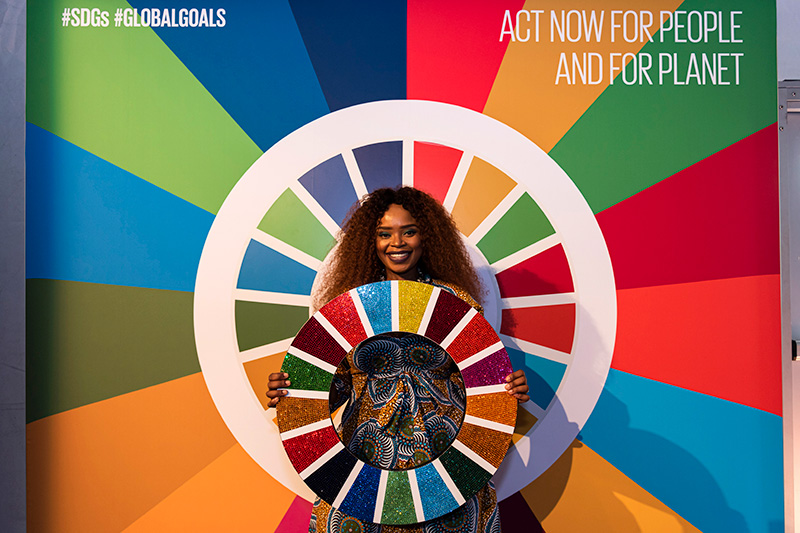
It is surely an impossible task to live up to the Mandela name, with the expectation of greatness that it carries.
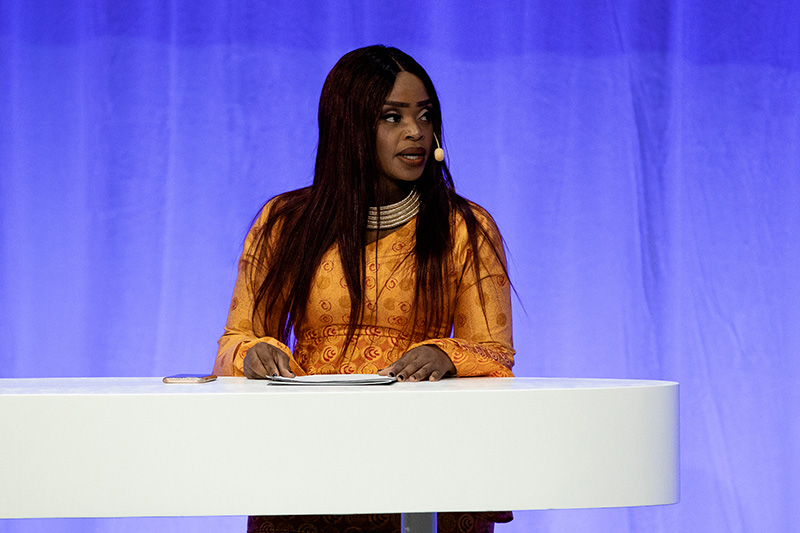
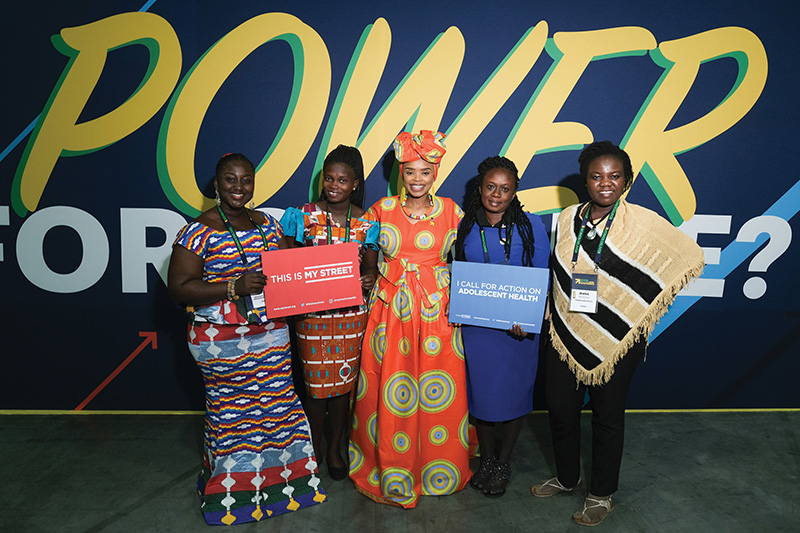
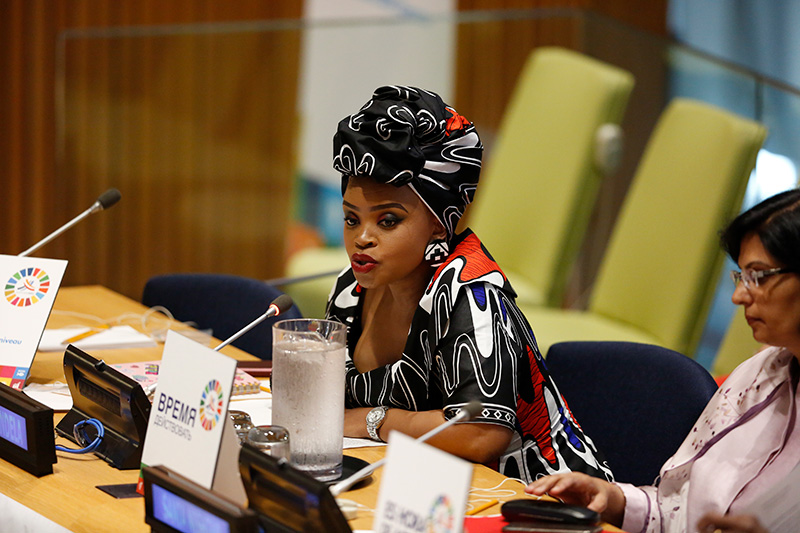
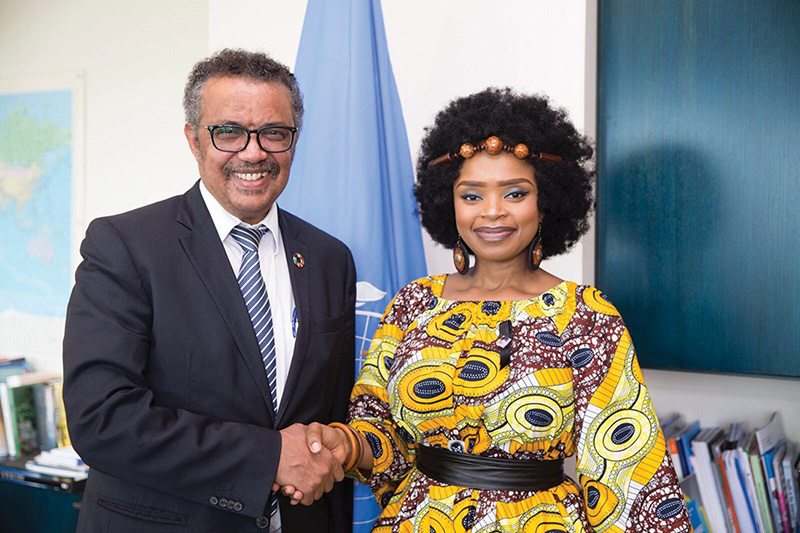
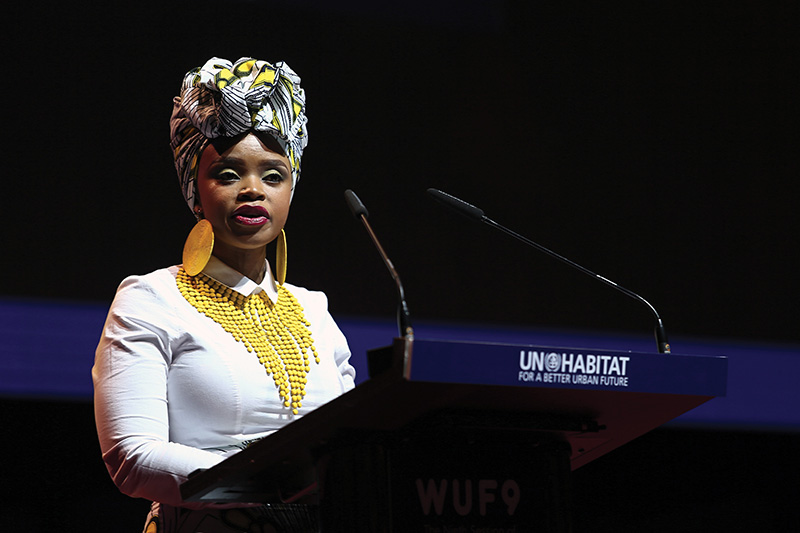
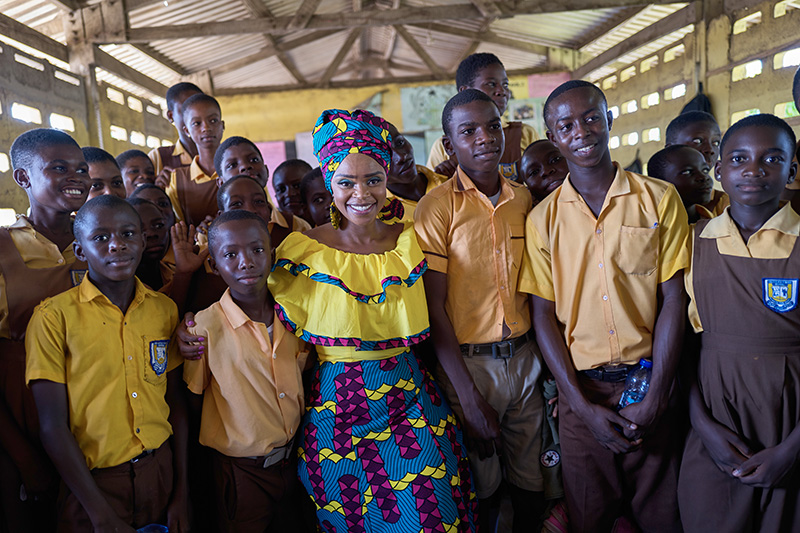
Yet in her own way, with humility and an understated power, Zoleka Mandela not only followed in the footsteps of her iconic grandfather but forged her own path and found that her voice could resonate on a global stage.
Zoleka had faced and overcome adversity throughout her 43 years. She was determined to be a “survivor” of breast cancer, but after a long struggle, she died in hospital in Johannesburg on 25 September 2023. Throughout her adult life, Zoleka constantly battled the challenges of mental health, a consequence of abuse she suffered as a teenager. Her response was to see it as her duty to tell her story, in an effort to help others. It was a story she told with stark honesty in her autobiography ‘When hope whispers’.
Zoleka’s life began in the intensity of the fight against Apartheid. Her mother Zindzi was famous for standing in front of thousands in Soweto in 1985, speaking on Nelson Mandela’s behalf, rejecting PW Botha’s offer of a conditional release from Pollsmoor Prison. Zindzi was a force to be reckoned with. Zoleka used to tell the story of how her mother could assemble an AK-47 in 38 seconds. And as a 20 year old, Zindzi was trained in guerilla warfare in order to fight the Apartheid regime as a member of the militant group Umkhonto we Sizwe.
A few years before Zindzi’s Soweto speech, not long after she was born, Zoleka was smuggled into Robben Island Prison by her grandmother so that her grandfather could hold her. On the journey over to the island, while the white prison visitors sheltered inside the ferry boat, as a black visitor Winnie Mandela had to sit on the top deck. Exposed to the wind and rain, she had covered herself in a large blanket. Unknown to anyone until her grandmother had entered the prison itself, Zoleka was wrapped and hidden inside it. After some discussion, the guards did allow Zoleka to stay and following much pleading, they eventually allowed Nelson Mandela some time with his granddaughter. He stood with her in silence, holding her for a few minutes with tears in his eyes. Zoleka was the only one of his grandchildren that Nelson Mandela was to have contact with during his 18 years in the prison.
Zoleka had a special and close relationship with both of her grandparents, and she drew much inspiration from them. She used to tell the story of how in the days after her daughter was killed in a car crash, her grandfather insisted on her coming over to sit with him in his armchair. She remembered the words he whispered to her clearly. He had said: “You are not the only one who has lost a child. I have lost a child and many people have. But for you, it is so that you can bring hope to many.”
Zoleka found an inner strength in these words. Just nine months after her daughter, Zenani was killed on a Johannesburg road, Zoleka started her campaigning with the FIA Foundation. She launched the “Zenani Mandela Scholarship” in London in April 2011 for the start of the UN Decade of Action for Road Safety. The Scholarship – announced in partnership by the FIA Foundation with the Nelson Mandela Foundation – supported young road safety professionals from South Africa to receive training from leading experts.
Zoleka’s speech, delivered at the “Make Roads Safe” event to mark the Decade of Action was impassioned and intensely moving. She told the audience about the close bond she had with her daughter, and urged strong action and bold leadership – “no family should suffer as mine has done”, she said.
This was to be the first of many powerful speeches over the next 12 years of sustained advocacy and campaigning. The work took her to the UN where she helped launch the Sustainable Development Goals in 2015, leading the campaign which successfully secured the inclusion of road safety as a targeted priority in the 2030 Agenda. Zoleka grew in confidence combining effectiveness as a communicator – which had echoes of her grandfather – with an authentic emotional power all of her own.
Whether speaking in front of heads of state at the UN, or addressing teachers and children at one of the numerous schools she visited, the effect was the same.
Prominent among the many global platforms for her advocacy was the second Ministerial conference on road safety in Brasilia in 2015. There, sharing the stage with the President of Brazil, she delivered a strong and deeply personal call to action. She told the packed auditorium, Ministers and Government representatives from around the world that she stood before them primarily as a mother, and issued a stark reminder: “you have it in your power to end this crisis”, she said.
Zoleka had been intensively campaigning throughout the year and before with the FIA Foundation, with civil society, the road safety NGO alliance, communities and families from around the world. She had been focusing on the rights of children – those who as she reminded audiences in her grandfather’s words, must be protected as a priority as a mark of any civilized society. As was her gift, Zoleka had listened and engaged intently with the children that she met.
“Six year olds told us that they needed a safe crossing to get to school; little ones said they needed child seats to keep them safe in vehicles; school kids asked for action against speeding and drink driving. Perhaps we should listen to our kids. If children find these answers self-evident, why are our leaders not doing more?” she asked the Ministerial.
“Let me tell you about my tragedy,” she continued. “Just over five years ago, my life was shattered. My world was destroyed. It only took seconds. My daughter, Zenani Mandela, had been a teenager for just one day. One moment, my little girl who was full of hopes and dreams and laughter was with us. And then, in the few seconds it takes to crash a car - she was gone.”
“You watch your children grow, you see them start to make their own lives. You never imagine it could end so suddenly.”
The emotion cut through the auditorium. And as it did so, she admonished those present. Five years into the ‘Decade of Action’ road deaths were still rising in over 70 countries she said – “where is the action? Where is the urgency?”
As always, while Zoleka was the voice of many thousands of parents who had lost a child on the world’s roads, her advocacy was also sharply aimed at policy makers. She presented an agenda, a set of immediately actionable priorities, charting a way ahead to prevent millions of deaths and injuries. The solutions can no longer be ignored she said, “no excuse”.
The agenda with priorities such as a safe school journey for every child, was one that she campaigned on tirelessly in the years following. Her energy and indefatigable spirit continued even in the last few months before her death. Severely ill, Zoleka’s final piece of work was to visit one of the most deprived and challenging neighbourhoods in South Africa – Khayelitsha. There the FIA Foundation had been supporting its local partner Childsafe, to implement just the life-saving measures that Zoleka had been calling for in Brasilia and campaigning on since – measures to reduce speeds around the schools, traffic management, safe crossings.
In a quiet classroom she met 12 year old Azipheli Ngesi. Azipheli and her best friend Langa Gwele used to walk to school together. Langa was a quiet girl, who often got overlooked by the more outgoing children. But the pair were inseparable, and Langa would often be seen chatting and laughing with her best friend. Langa was killed just weeks before Zoleka’s visit. She was hit while crossing the road one morning on the way to school.
Zoleka comforted Azipheli as only she could. And in an incredibly moving piece of filming she got Azipheli to tell her story. Such was the strength of Zoleka Mandela.
---
Zoleka Mandela died on 25 September 2023, after battling cancer for several years. She is survived by a son, Zwelami (20), and three daughters, Zanyiwe (9), Zenzile (4) and Zingce (18 months).
She was Global Ambassador of the FIA Foundation’s Child Health Initiative.